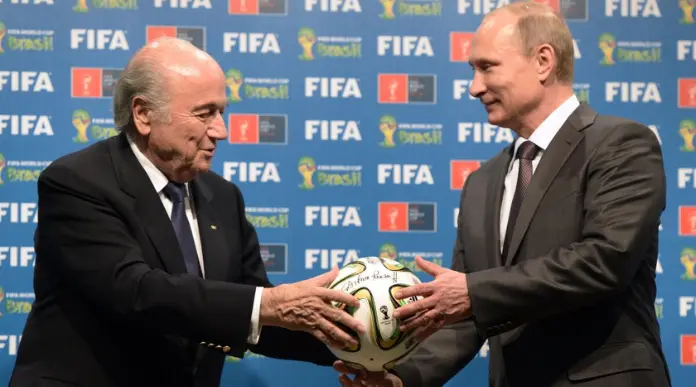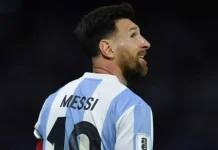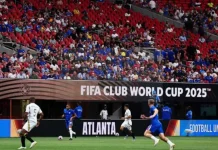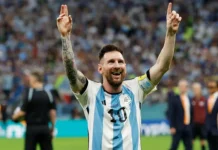The FIFA diplomacy scandal—often dubbed “FIFAgate”—has unraveled one of the most extensive corruption networks in global sports history. This explosive saga has revealed how authoritarian regimes and corrupt officials manipulated football, the world’s most beloved sport, as a political and diplomatic tool. Drawing from decades of illicit activity, the scandal showcases how football’s governing body, FIFA, was transformed into a nexus of self-enrichment, vote-rigging, and geopolitical gamesmanship.
The Magnitude of Corruption
Multi-Million Dollar Bribes and Financial Discrepancies
At the heart of the scandal lies the revelation of at least $150 million in bribes paid to FIFA officials over more than 24 years. These payments were made in exchange for securing television rights, sponsorship deals, and World Cup hosting privileges.
While FIFA operates as a nonprofit NGO under Swiss law, its financial power rivals some of the world’s largest corporations. From 2011 to 2014, the organization earned nearly $6 billion, primarily from broadcast rights and sponsorship deals. In 2014 alone, FIFA reported $2.1 billion in revenue, but shockingly paid only $75 million in taxes over a four-year period, raising concerns about tax avoidance and financial opacity.
The Key Figures Behind the Scandal
Sepp Blatter and the Patronage Network
Former FIFA president Sepp Blatter played a central role in the scandal. Accused of using FIFA’s development funds as political currency, Blatter maintained support through a well-structured patronage system, particularly among smaller football nations. Despite reelection amid allegations, he resigned under mounting legal pressure.
Other Indicted Officials
High-ranking executives like Jeffrey Webb, Eugenio Figueredo, and Jack Warner were indicted by the U.S. Department of Justice on charges of racketeering, wire fraud, and money laundering. Warner was notably linked to $1.6 million in bribes related to Qatar’s successful bid to host the 2022 World Cup.
Former UEFA chief Michel Platini and other European figures were also implicated via leaked documents, including those from the Panama Papers, which exposed offshore accounts and shell companies used to launder illicit funds.
Structural Flaws: How FIFA’s Voting System Enabled Corruption
One Country, One Vote: A Double-Edged Sword
FIFA’s democratic voting model—where each of its 209 member nations has an equal vote—was intended to ensure fairness but instead became a tool for manipulation. Smaller countries, with limited governance structures, were easy targets for bribery.
Qatar, for instance, reportedly used bribe payments and strategic alliances to secure the 2022 World Cup. Similarly, Russia’s successful 2018 bid was allegedly supported by an $80 million partnership deal with a state energy firm, underscoring how geopolitical interests infiltrated FIFA’s electoral process.
Authoritarian Regimes and Football Diplomacy
Sports as a Soft Power Tool
The scandal goes beyond simple corruption; it highlights how football diplomacy became a weapon for tyrants. Authoritarian regimes used FIFA’s structure to gain global legitimacy, distract from human rights abuses, and solidify international alliances.
Influence Beyond the Field
From hosting rights to executive influence, football provided political leverage. For smaller states and repressive governments, aligning with FIFA allowed access to powerful global networks. Votes were exchanged for development funds, broadcasting contracts, and even diplomatic favors, making football a key player in international realpolitik.
Investigations and Legal Repercussions
Global Raids and Indictments
The scandal reached its boiling point in May 2015, when the U.S. Department of Justice unsealed indictments against 14 individuals, including nine FIFA officials. Raids conducted in Zürich by Swiss authorities marked a turning point, with arrests shaking FIFA’s leadership.
Ethics Reports and Transparency Challenges
Former U.S. attorney Michael Garcia compiled a comprehensive 350-page ethics report detailing systemic corruption. However, FIFA’s release of only a 42-page sanitized summary drew widespread criticism. Garcia later disavowed the summary, stating it misrepresented his findings—a move that deepened public distrust.
Financial Mechanisms: Offshore Accounts and Shell Companies
Panama Papers and Hidden Assets
Documents from the Panama Papers linked FIFA officials and even top-tier players like Lionel Messi to offshore accounts used for tax avoidance and laundering. Law firm Mossack Fonseca was instrumental in setting up these opaque financial structures.
Club owners from institutions like Internazionale Milano and Boca Juniors were similarly implicated, revealing how systemic the abuse had become across global football’s ecosystem.
Expert Opinions and Global Reactions
Legal and Financial Institutions Under Scrutiny
Former U.S. Attorney General Loretta Lynch described the corruption as “rampant, systemic, and deep-rooted.” She emphasized the multigenerational abuse of power within FIFA.
Eric LeCompte of the Jubilee USA Network criticized the role of major banks like Citigroup and JP Morgan, alleging complicity in facilitating bribe transfers via shell entities. He advocated for stronger legislation like the Incorporation Transparency and Law Enforcement Assistance Act to close loopholes that enable such abuse.
Long-Term Impact on Global Football Governance
Reforms and Structural Overhauls
Following public outcry and international legal actions, FIFA introduced governance reforms, including term limits, external audits, and enhanced ethics compliance. However, many critics argue these changes are insufficient given the scale of corruption uncovered.
Lessons for Global Institutions
The scandal underscores the vulnerability of non-governmental NGOs and global institutions to manipulation. It also illustrates the need for transparency, ethical leadership, and external oversight in any organization with significant geopolitical influence.
A Turning Point for Football and Governance
The FIFA diplomacy scandal has redefined how the world views the intersection of sports, politics, and power. Far from being just a sporting issue, the revelations expose a global system of influence-peddling, financial misconduct, and authoritarian manipulation.
Football, intended to unify and inspire, was instead weaponized by tyrants and corrupt officials for personal and political gain. The fallout from FIFAgate has already reshaped conversations around sports governance, international accountability, and the role of nonprofit NGOs in global affairs.
As investigations continue and reforms take root, the scandal remains a stark reminder of how even the world’s most beloved game can be corrupted when oversight fails and power goes unchecked.













